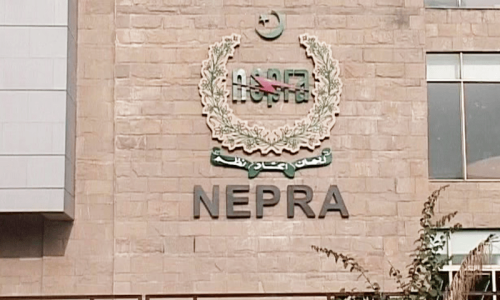ISLAMABAD: The National Electric Power Regulatory Authority (Nepra) on Monday notified an increase of Rs1.25 per unit in electricity rates to provide about Rs46.54 billion in additional revenue to ex-Wapda distribution companies (Discos) on account of quarterly tariff adjustments (QTA) for January-March 2023.
In a notification, the regulator said it had “determined a positive adjustment of Rs46.536bn on account of variation in capacity charges, Variable O&M [operation and maintenance], additional recovery on incremental sales, use of system charges, market operator fee and FCA impact on T&D [transmission and distribution] losses for the 3rd quarter of FY2022-23” and hence “is notified for recovery in three (03) months period i.e. July, August and September 2023” at the rate of Rs1.2489 per unit to all consumers, including residential consumers using 1-100 units per month.
This Rs46.54bn fiscal burden on consumers for the consumption quarter January to March is despite an Rs7.91 per unit increase in base tariff, that came into force starting July 2022, involving about Rs890bn revenue impact during the fiscal year ending June 30, 2023.
On top of that, the government imposed in March this year Rs3.82 per unit surcharge on electricity consumption under an Rs335bn financing plan to IMF conditions that would now remain place at a relatively lower rate of Rs3.23 per unit surcharge for the current fiscal year (2023-24) in addition to routine fuel cost adjustments ranging between Rs1-2 per unit every month.
Moreover, the regulator also allowed in March this year a recovery of up to Rs14.24 per unit fuel costs outstanding since August last year because of floods. The government was to pass on this fuel adjustment for the months of June and July 2022. However, Prime Minister Shehbaz Sharif had announced to defer it due to the application of Rs7.91 per unit increase in base tariff at the same time and then subsequent public outcry following the floods.
In the same month (March 2023), the government under the IMF programme had also withdrawn a special fixed tariff of Rs19.99 per unit for all export industries and discontinued special relief of Rs3.60/unit provided to the private agriculture consumers in their current base rate of Rs16.60/unit. Both these facilities to exporters and farmers stood abolished with effect from March 1, 2023.
As if that was not enough, the government and the regulator have already completed the hearing process for another increase in national base tariff by Rs5-8 per unit and a formal notification is expected anytime soon in this regard.
Yet, despite all these tariff increases, circular debt has jumped to Rs2.65 trillion at the rate of Rs36 billion per month in 11 months (July-May) of fiscal year ending June 30, 2023.
Out of total Rs46.45bn additional revenue for power companies, the consumers will be paying higher electricity rates to clear bills of Rs33bn on account of capacity charges to the Independent Power Producers (IPPs).
Simply put, the consumers would have to cough up the cost of electricity which the Discos had not injected into the national demand due to either system constraints or low demand for electricity.
Published in Dawn, July 11th, 2023















































Dear visitor, the comments section is undergoing an overhaul and will return soon.